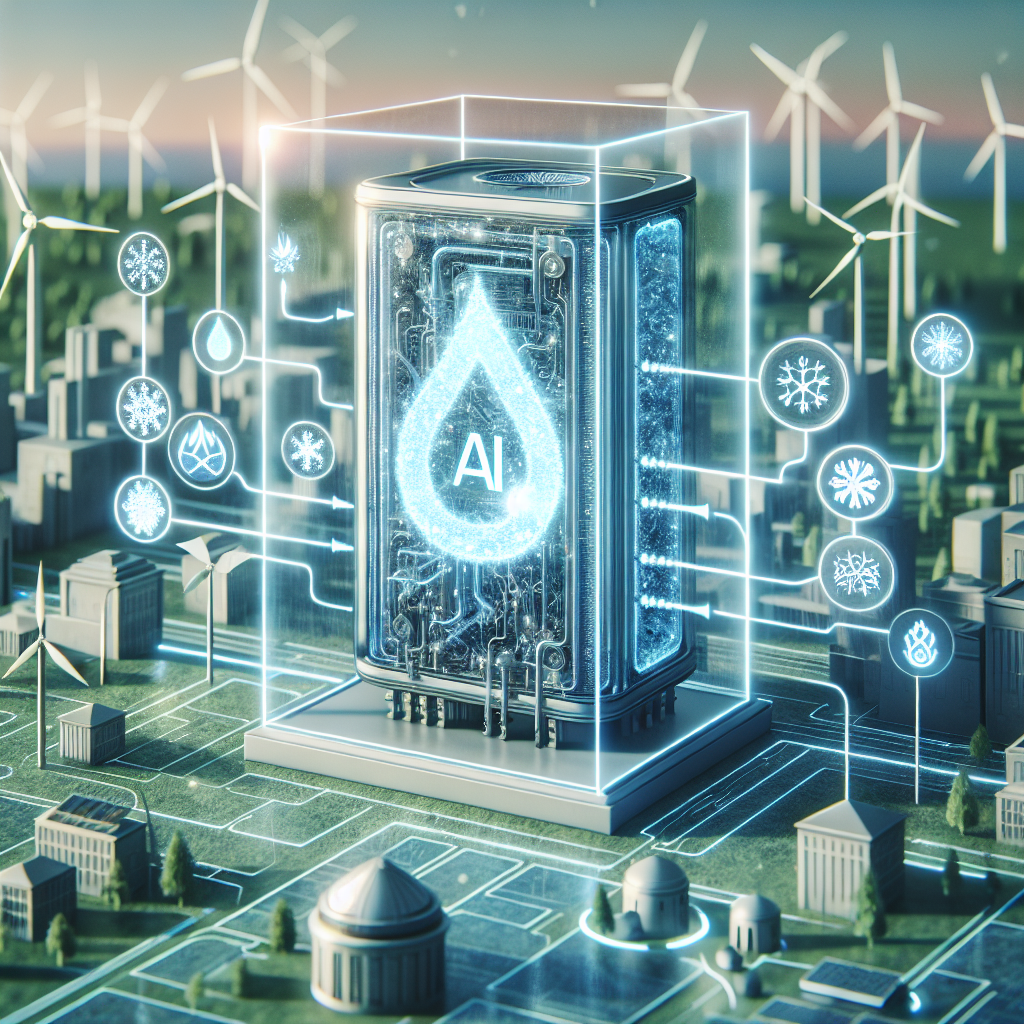As the world continues to shift towards renewable energy sources, optimizing energy consumption in heating and cooling systems is becoming increasingly important. With the rise of artificial intelligence (AI) technology, there are now innovative solutions that can help maximize the efficiency of renewable heating and cooling systems. By leveraging AI algorithms and data analytics, businesses and homeowners can reduce energy waste, lower costs, and decrease their carbon footprint.
Renewable heating and cooling systems, such as solar thermal systems, geothermal heat pumps, and biomass boilers, have gained popularity in recent years as a more sustainable alternative to traditional fossil fuel-based systems. However, these systems can still be inefficient if not properly optimized. AI technology offers a way to monitor and control these systems in real-time, adjusting settings based on factors such as weather conditions, building occupancy, and energy demand. This proactive approach can lead to significant energy savings and improved performance.
One of the key benefits of using AI in renewable heating and cooling systems is its ability to predict and respond to changes in energy demand. By analyzing historical data and weather forecasts, AI algorithms can anticipate fluctuations in heating and cooling needs and adjust system settings accordingly. For example, on a particularly cold day, the system can ramp up heating output to ensure a comfortable indoor temperature, while on a milder day, it can reduce output to conserve energy. This dynamic approach helps to minimize energy waste and optimize system performance.
Another advantage of AI technology is its ability to optimize the operation of multiple renewable energy sources in a hybrid system. For instance, a building may have both a solar thermal system and a geothermal heat pump. By using AI to coordinate the operation of these systems, energy can be efficiently distributed based on factors such as sunlight availability, ground temperature, and building occupancy. This integrated approach ensures that each energy source is utilized to its full potential, maximizing overall efficiency and reducing reliance on grid electricity.
AI can also improve maintenance and troubleshooting processes for renewable heating and cooling systems. By monitoring system performance in real-time and analyzing data for signs of inefficiency or malfunction, AI algorithms can alert maintenance personnel to potential issues before they escalate. This proactive approach can help prevent costly breakdowns, extend the lifespan of equipment, and ensure that systems operate at peak efficiency.
In addition to optimizing energy consumption, AI technology can also help businesses and homeowners make informed decisions about their heating and cooling systems. By analyzing data on energy usage, costs, and environmental impact, AI algorithms can provide valuable insights into the overall performance of the system and identify areas for improvement. This data-driven approach can empower users to make smarter choices about energy management, such as investing in additional renewable energy sources, upgrading equipment, or adjusting system settings for better efficiency.
Overall, the use of AI in renewable heating and cooling systems offers a range of benefits, including improved energy efficiency, reduced costs, and lower environmental impact. By harnessing the power of data analytics and machine learning, businesses and homeowners can optimize their systems for maximum performance and sustainability. As AI technology continues to advance, the potential for further innovations in energy optimization is vast, offering new opportunities to drive the transition towards a more sustainable energy future.
FAQs:
Q: How does AI technology optimize energy consumption in renewable heating and cooling systems?
A: AI technology uses algorithms and data analytics to analyze factors such as weather conditions, building occupancy, and energy demand in real-time. By adjusting system settings based on this information, AI can maximize energy efficiency and reduce waste.
Q: What are the benefits of using AI in renewable heating and cooling systems?
A: AI technology can help predict and respond to changes in energy demand, optimize the operation of multiple energy sources in a hybrid system, improve maintenance and troubleshooting processes, and provide valuable insights for informed decision-making.
Q: Can AI technology help reduce costs for businesses and homeowners?
A: Yes, by optimizing energy consumption and improving system performance, AI technology can help reduce energy costs and lower overall operating expenses. Additionally, AI can provide insights into potential areas for cost savings and efficiency improvements.
Q: How can businesses and homeowners implement AI technology in their heating and cooling systems?
A: There are a variety of AI-powered solutions available on the market that can be integrated into existing heating and cooling systems. These solutions typically involve installing sensors, data analytics software, and AI algorithms to monitor and control system performance.
Q: What are the long-term impacts of using AI to optimize energy consumption in renewable heating and cooling systems?
A: By improving energy efficiency and reducing waste, AI technology can help businesses and homeowners lower their carbon footprint and contribute to a more sustainable energy future. Additionally, optimized systems can lead to cost savings and increased resilience against fluctuating energy prices.

